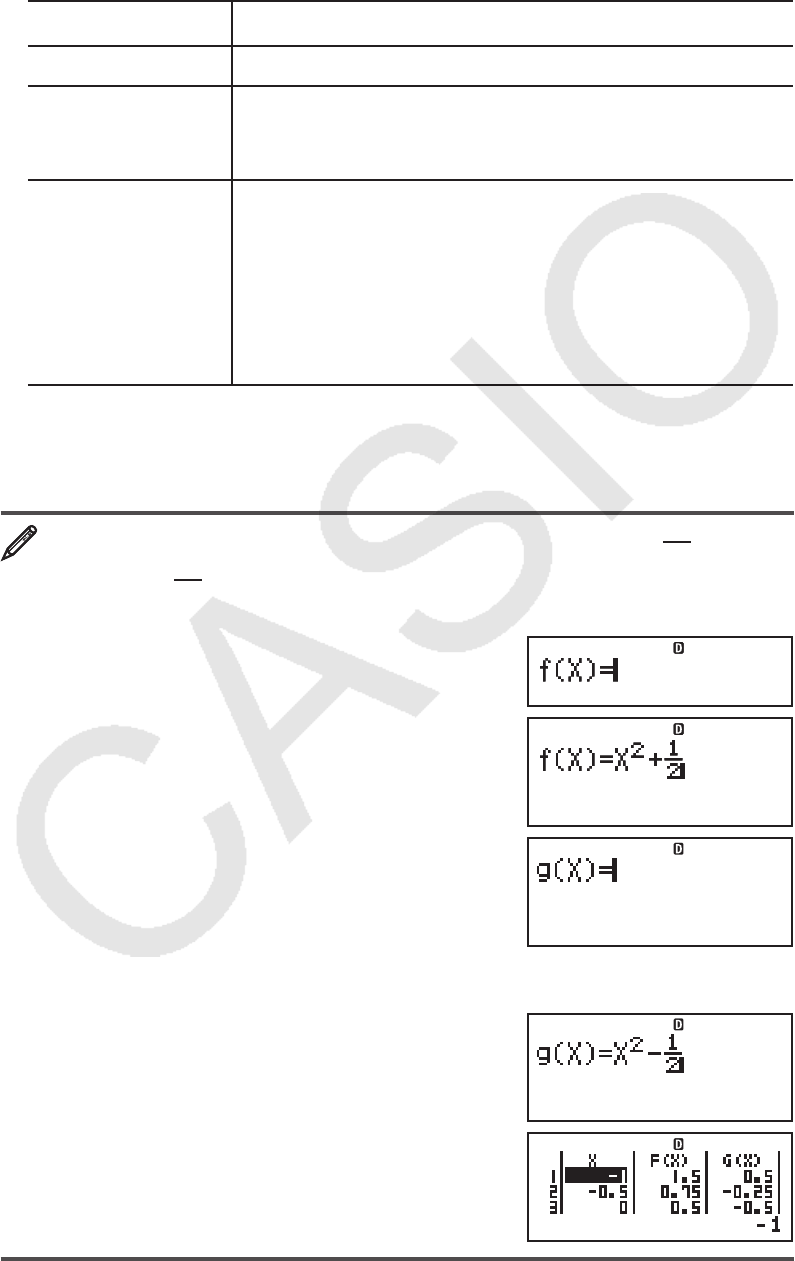
E-40
• Be sure to input the X variable (S)(X)) when generating a number
table. Any variable other than X is handled as a constant.
• If you are using a single function, input a function in the format
f(x)
only.
• The following cannot be used in the function: Pol, Rec, ∫,
d/dx, Σ, Π.
3. In response to the prompts that appear, input the values you want to use,
pressing = after each one.
For this prompt: Input this:
Start?
Input the lower limit of X (Default = 1).
End? Input the upper limit of X (Default = 5).
Note: Make sure that the End value is always
greater than the Start value.
Step? Input the increment step (Default = 1).
Note: The Step specifies by how much the Start
value should be sequentially incremented as the
number table is generated. If you specify Start = 1
and Step = 1, X sequentially will be assigned the
values 1, 2, 3, 4, and so on to generate the number
table until the End value is reached.
• Inputting the Step value and pressing = generates and displays the
number table in accordance with the parameters you specified.
• Pressing A while the number table screen is displayed will return to
the function input screen in step 2.
To generate a number table for the functions
(
x
) =
x
2
+
2
1
and
g(x) = x
2
−
2
1
for the range –1 Ϲ x Ϲ 1, incremented in steps of 0.5
B
N7(TABLE)
1N(SETUP)c5(TABLE)2(f(x),g(x))
S)(X)x+ 1 ' 2
=
• Pressing = without inputting anything for
g(x) will generate a number
table based on
f(x) only.
S)(X)x- 1 ' 2
=-1 =1 =0.5 =
Note: • The maximum number of rows in the generated number table depends
on the setup menu table setting. Up to 30 rows are supported for the “f(x)”
MathMath
MathMath
MathMath
MathMath
MathMath
